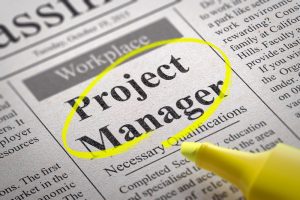 In a world full of roles and responsibilities there’s one special character called: Project Manager aka. the PM, sometimes it’s underestimated but others, it could be overestimated, none of these are good of course.
In a world full of roles and responsibilities there’s one special character called: Project Manager aka. the PM, sometimes it’s underestimated but others, it could be overestimated, none of these are good of course.
I assume we all have worked with at least one PM in our lives, some are great, some are good, some are… well, not that good… But what exactly do the PM’s? What are their responsibilities within a project? Why we need them? Do we need them?
There are thousands of articles, posts and books explaining this role, but honestly I find out that a lot of those are excessively extensive, repetitive and overthink the role, so I decided to write this post trying to explain this position in a more straight-to-the-point way, not going to use fancy terminology or anything like that, because, we don’t like it, right? Let’s go through some of the most frequent questions when trying to understand that the PM does:
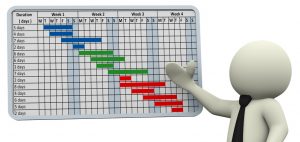
Is the PM the boss?
No, it’s not, but it’s part of the leadership of the project.
Can the PM fire me from the company?
Not in most cases, depends on the structure of your company, but I’d say it’s unlikely. Although, the PM can pull you out of a project if it’s not a good fit.
Is the PM responsible to keep me motivated?
 Partially, yes. It’s definitively part of the PM role to work closely with the development team, understand their needs and work with you if you’re feeling like the tasks you’re being given are too boring or go way beyond your abilities, and therefore you’re feeling frustrated or unmotivated. But, always recall that motivation comes from within, you shouldn’t expect for an external factor to motivate you in the work place or anywhere for that matters.
Partially, yes. It’s definitively part of the PM role to work closely with the development team, understand their needs and work with you if you’re feeling like the tasks you’re being given are too boring or go way beyond your abilities, and therefore you’re feeling frustrated or unmotivated. But, always recall that motivation comes from within, you shouldn’t expect for an external factor to motivate you in the work place or anywhere for that matters.
Is the PM responsible to assign me the appropriate tasks on time and form?
Yes, completely. this is most likely the fundamental responsibility of this role. It’s your PM’s job to keep you busy, working on the appropriate priorities for the project, describing all the possible details of what needs to be done and in what order.
Is the PM responsible to ask me ‘how are things going’?
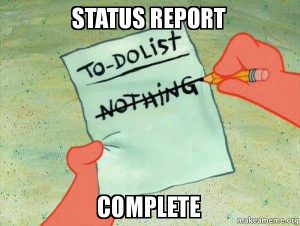
Partially, yes. It’s part of the PM’s responsibility to ask for status updates as appropriate as needed, let’s say you get a task assigned at 9 am and the deadline is at 4 pm, your PM will probably request status updates from you every 1-2 hours, BUT it’s also your responsibility to keep your PM informed though this time.
Is the PM responsible to provide me everything that I need to complete a task?
Yes, although, let’s clarify that sometimes this means that your PM will be able to provide you this by facilitating you a call with other teams or technical people from other vendors. But if the things that you need are not necessarily too technical, then your PM should be able to provide you directly whatever you need to complete a task.
Is the PM responsible to help me with a conflict I have with other teammember?
Yes, and again, this is one of the fundamental tasks of the PM role. PM’s should be able to handle 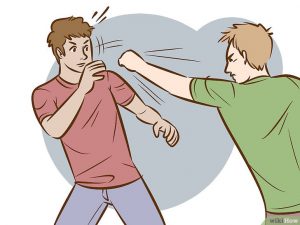 interpersonal conflicts within the team, PM training’s include conflict resolving management, this gives us the ability to handle conflicts of this type in the best way, sometimes it’s a matter of having a casual gathering outside the office with the two parties to get to an agreement, some times it goes beyond that and the PM will act as a proxy on all communication between the two persons involved in the conflict.
interpersonal conflicts within the team, PM training’s include conflict resolving management, this gives us the ability to handle conflicts of this type in the best way, sometimes it’s a matter of having a casual gathering outside the office with the two parties to get to an agreement, some times it goes beyond that and the PM will act as a proxy on all communication between the two persons involved in the conflict.
Is the PM the people person?
Ideally, yes. As PM’s have contact with the client, stakeholders, Dev, QA’s, vendors and all teams involved in a project, it’s definitely a plus if your PM has strong interpersonal skills. Best PM’s I have worked with show interest not only on the project but in the people working on it, they care about the work being done but also about each member of the team, they are approachable, they know how to communicate the good and the bad news and how to help their teams to keep a balance between work and personal lives.
These are only a few responsibilities of a PM, there are more like maintaining good communication within the team, managing risks, informing stakeholders, oh! and planning, planning, planning… But, I’ll cover those in detail in a future post.
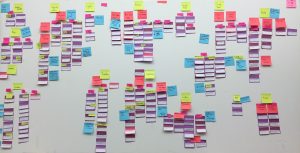
Have more questions regarding the PM role, are you unsure if your PM should be doing this or that? Write down your questions in the comments below!


